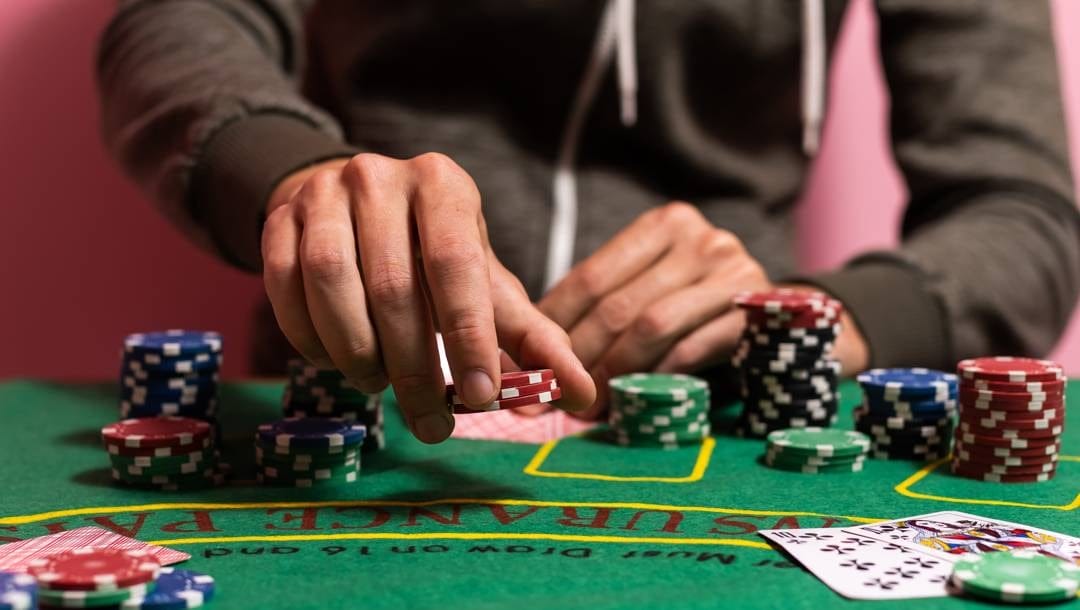
Blackjack Insurance Bet: Smart Strategy or Costly Mistake?
Introduction: Unveiling the Blackjack Insurance Bet
Ever found yourself at the blackjack table, the dealer shows an Ace, and suddenly a new option appears: "Insurance"? This intriguing side bet often sparks curiosity, but what exactly is it, and should you take it?
What is an Insurance Bet in Blackjack?
An Insurance bet is a side bet offered when the dealer's upcard is an Ace. It's essentially a bet that the dealer has a 10-value card (10, Jack, Queen, King) in the hole, making their hand a Blackjack.
How Does it Work?
- If the dealer shows an Ace, players are offered Insurance before any further cards are dealt.
- You can bet up to half of your original wager on Insurance.
- If the dealer does have a Blackjack, your Insurance bet pays 2:1.
- If the dealer does not have a Blackjack, you lose your Insurance bet. Your original hand then plays out as normal.
For example, if you bet $10 on your main hand and take Insurance for $5, and the dealer reveals a Blackjack, you lose your original $10 bet (unless you also have a Blackjack, resulting in a push), but you win $10 from your $5 Insurance bet (5 * 2 = 10). This effectively "insures" you against losing your entire original bet, hence the name.
Is Taking Insurance a Good Strategy?
For the vast majority of blackjack players, especially those employing basic strategy, the answer is a resounding "no." Insurance is widely considered a "sucker bet" because the odds are generally not in your favor.
The Math Behind the Bet
Let's consider a standard 8-deck game. There are 32 cards with a value of 10 (10s, Jacks, Queens, Kings) and 8 cards with an Ace value. The remaining cards are 2-9. When the dealer shows an Ace, the probability of them having a 10 in the hole is less than 1/3 (approximately 30.7% in an 8-deck game, slightly varying with fewer decks and cards already out).
Since the bet pays 2:1, you need the dealer to have a Blackjack roughly 1 out of 3 times for it to be a break-even bet. The actual probability is typically worse than this, giving the house an edge on the Insurance bet itself.
When Might Insurance Be Considered?
There's one primary exception where an Insurance bet might become mathematically viable: card counting.
Card Counting and Insurance
For skilled card counters who know the deck is "rich" in 10-value cards, the probability of the dealer having a Blackjack can increase to a point where the Insurance bet becomes positive expected value. However, this is a highly advanced strategy, often prohibited in casinos, and requires significant skill and practice.
For the average player, trying to guess the dealer's hole card based on instinct is a losing proposition.
Conclusion: Play Smart, Not Insured
While the allure of "insuring" your bet against a dealer's Blackjack might seem appealing, the reality is that the Insurance bet is, for most players, a statistically disadvantageous move. Stick to basic strategy, manage your bankroll wisely, and avoid the temptation of this side bet to maximize your long-term enjoyment and success at the blackjack table.
Focus on solid strategy, and let your skills, not risky side bets, guide your play!